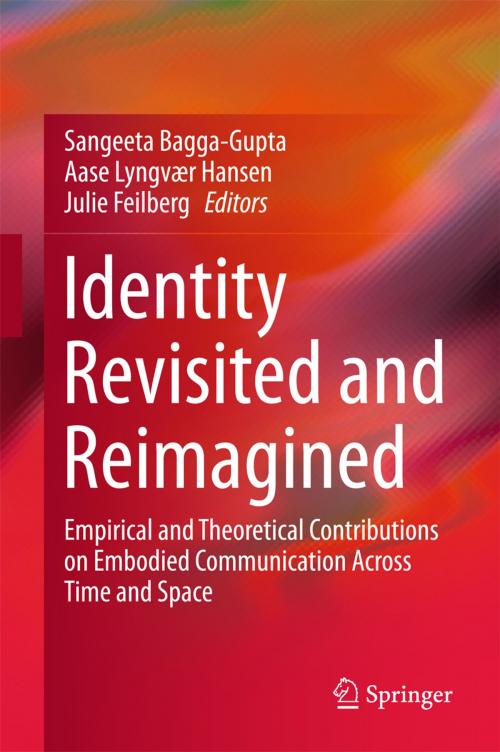Identity Revisited and Reimagined
Empirical and Theoretical Contributions on Embodied Communication Across Time and Space
Nonfiction, Social & Cultural Studies, Social Science, Methodology, Gender Studies| Author: | ISBN: | 9783319580562 | |
| Publisher: | Springer International Publishing | Publication: | July 6, 2017 |
| Imprint: | Springer | Language: | English |
| Author: | |
| ISBN: | 9783319580562 |
| Publisher: | Springer International Publishing |
| Publication: | July 6, 2017 |
| Imprint: | Springer |
| Language: | English |
In contrast to other studies on identity, this book takes its point of departure in the complexities that characterize and shape both individuals and societies – past and present. Its chapters challenge demarcated fields of study and conceptions of identity as gender, identity as functional disability, identity as race, and identity as, or based upon language groupings. The contributions take a social practices perspective in their exploration of the performance, living and doing of identity positions across time and space. Many of the contributions take an intersectional stance and the majority report upon empirically driven studies that examine the ways in which micro-level analyses of naturally occurring human communication contribute to our understanding of identification processes. Specifically, they study the ways in which more recent dialogical and social theoretical-analytical frameworks allow for attending to the complexity and dynamics of identity processes; the ways in which institutional settings, media settings, community of practices and affinity spaces provide affordances and obstacles for different types of identity positions; and the ways in which shifts in identity positions can be traced across time and space.
In contrast to other studies on identity, this book takes its point of departure in the complexities that characterize and shape both individuals and societies – past and present. Its chapters challenge demarcated fields of study and conceptions of identity as gender, identity as functional disability, identity as race, and identity as, or based upon language groupings. The contributions take a social practices perspective in their exploration of the performance, living and doing of identity positions across time and space. Many of the contributions take an intersectional stance and the majority report upon empirically driven studies that examine the ways in which micro-level analyses of naturally occurring human communication contribute to our understanding of identification processes. Specifically, they study the ways in which more recent dialogical and social theoretical-analytical frameworks allow for attending to the complexity and dynamics of identity processes; the ways in which institutional settings, media settings, community of practices and affinity spaces provide affordances and obstacles for different types of identity positions; and the ways in which shifts in identity positions can be traced across time and space.















